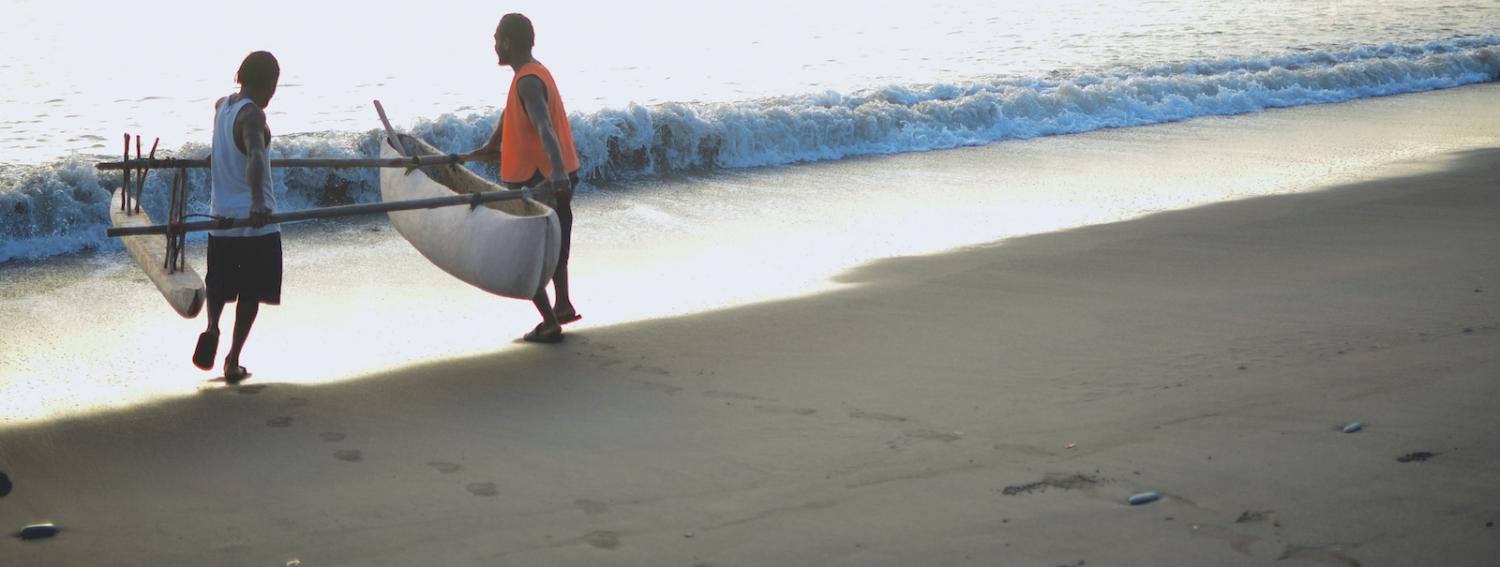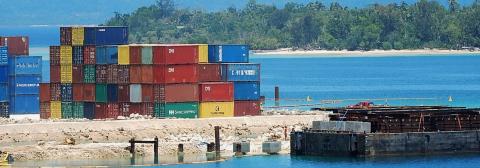Speeches on foreign policy made by prospective Prime Ministers or prospective Foreign Ministers in Australia are a bit like bingo games for foreign policy analysts. We listen (or read the transcript) eagerly to determine how many of the various recommendations we have all been making to the incumbent government for the last five years or so have registered with the opposition.
Both Shorten and Wong said they wanted Australia to be the ‘partner of choice’ for Pacific island countries.
The Pacific watchers amongst us tally up how many times the term “Pacific islands” is mentioned and then whether the speaker ticks boxes on climate change, security, labour mobility, infrastructure, partnership, soft power, gender equality, and dealing with the rise of China.
We’ve had a bingo bonanza this week, with first Opposition Leader Bill Shorten at the Lowy Institute then Shadow Foreign Minister Penny Wong at the APEC Study Centre proving they have listened, consulted, considered, and developed sound policies that should resonate with our Pacific island neighbours.
Shorten’s promise to “put the Pacific front and centre in our regional foreign policy” and Wong’s commitment that the “Pacific will be core business for Labor” are a recognition of the intrinsic importance of the Pacific islands region to Australian foreign policy. Both Shorten and Wong have understood this means more than simply spending more on aid in the region.
Critically, they have acknowledged the centrality of the threat from climate change. Wong was particularly forthright in her declaration that:
You can’t have a Pacific policy if you don’t have a climate change policy.
The Labor team uses the language that the Pacific Islands Forum uses to describe the region – “one Blue Pacific continent”, with Shorten saying Labor’s Pacific policy would “respect the important geopolitical implications of that terminology”. Seeking to align Australian policy with the policies of Pacific island countries rather than explaining why Canberra is at odds with Australia’s neighbours is a good start.
Proponents of labour mobility for Pacific islanders will be pleased to see Labor committed to building on the Seasonal Workers Program and alert to the need to safeguard it from domestic political interference. Wong’s support for Australian broadcasting services in the Pacific will be music to the ears of advocates, both in Australia and amongst Pacific island leaders, of Australian broadcasting services to the region. Wong’s recognition of the soft power value for Australia to have Australian voices heard on the radio or other new media platforms in the Pacific as well as the education value for Australians to be hearing and seeing Pacific voices is to be welcomed.
Shorten’s announcement of a new Australian government-backed infrastructure investment bank offering concessional loans for infrastructure in the region should enable a vital alternative to China, the World Bank, and the Asian Development Bank. As Shorten did not link the idea directly to former foreign minister Julie Bishop’s trilateral infrastructure fund, it is not clear whether he intends the new bank would work in cooperation with financing facilities in like-minded nations.
It appears to be a constructive way of supporting the infrastructure demands of our neighbours without resorting to raids on the aid budget (as occurred when the Turnbull government decided to fund the undersea internet cables for Papua New Guinea and Solomon Islands). However, we should be cautious in assuming how well funded such an investment bank would be and how capable it would be of offering a genuinely better option than Chinese concessional loans.
Both Shorten and Wong said they wanted Australia to be the “partner of choice” for Pacific island countries. When she was shadow minister for foreign affairs back in 2013, Julie Bishop said in a debate with then foreign minister Bob Carr that she would want to be remembered as the foreign minister who made Australia the partner of choice for Pacific countries.
The idea is an honourable one, but it could bear a clearer definition now that it has been around for five years. Does Australia want to be the number one trading partner for Pacific Island countries? The primary aid donor partner? The leading investment partner? The main lending partner? The principal climate advocacy partner? The strategic protector partner? Or only the partner for sensitive projects in which Australia would prefer China is not involved?
And why do Pacific island countries have to choose one partner over another? Isn’t it possible that they, like Australia, can manage relationships with a range of partners? Australia’s leading trading partner is China but its key strategic partner is the United States, and it manages many other forms of diplomatic “partnerships”.
Shorten said a Labor government would “engage with the Pacific not through the intricacies of geopolitics – but in its own right.” He said Australia’s goal would:
Not be the strategic denial of others but rather the economic betterment of the ten million people of the Pacific islands themselves.
This sounds good, but Australia cannot quarantine its relations with Pacific island countries from its relations with the rest of the world, from the way it engages with global policy concerns, or from its domestic preoccupations.
Australia’s relations with Pacific island neighbours are inevitably influenced by relations with the United States, China, Japan, France, New Zealand, Indonesia, and others. Policy engagement with Pacific island neighbours is shaped by the current government’s inability to develop a coherent climate change policy and scepticism of the Paris Agreement, by its immigration policy and tough approach on asylum seekers, by its anxiety about cyber security, and by its inclination to seek to balance the national budget by reducing the aid budget.
The Labor team has rightly seized on climate change policy as a point of difference with the Morrison government that will enable it to recalibrate Australia’s relationships with our Pacific neighbours should it win government at the next election.
Similar honesty with Pacific island counterparts about what a Labor government can or cannot do about other domestic and international policy constraints, including anxiety about Chinese influence, might help to broaden and strengthen Australia’s engagement with the region.


